Doc Holiday answers your big questions about cruises
Our resident travel expert answers the most common cruising queries that have dropped into her inbox.
Lifestyle
Don't miss out on the headlines from Lifestyle. Followed categories will be added to My News.
Got a cruise looming? Chances are you’ve got more than a few questions. Which insurance policy should I buy and why are they so expensive? Which cruise line should I go with if I have Champagne tastes and a beer budget? Do I really have to wear something formal on gala night?
I’m not immune to what I call “the huhs?”; with two cruises on the horizon, I too have been pondering everything from the requirements around the new UK ETA to cruising the Middle East at a time when things are tense. Having resolved my own cruising issues, I’ve collated and answered some of the most common cruising questions to hit my inbox over the past few months. Happy cruising!
1. When is the best time to book my cruise?
Look, we’ve all got that one mate who won’t stop dining out about the time he or she scored that “unbelievable” last-minute fare, but while it can happen, it’s probably best if we collectively understand that cruise lines adjust pricing as cabins sell out. This means that they’ll often hit the market with the best fares when itineraries first go on sale (usually 18 months – or more – in advance) and then slowly but surely raise prices as the months drag on (unless that particular sailing isn’t selling well).
Booking well in advance also means you’ll have your pick of the staterooms, be in line for cheaper airfares if you need to fly to your embarkation point, and you’re also more likely to nab a few extra perks such as extra on-board credit or a complimentary upgrade.
Of course, if you’re all about the cruise experience with little interest in the destinations the vessel visits, or which cabin or ship you occupy, last-minute deals can always be found. Simply search for your desired sail dates on sites such as Cruise 1st.
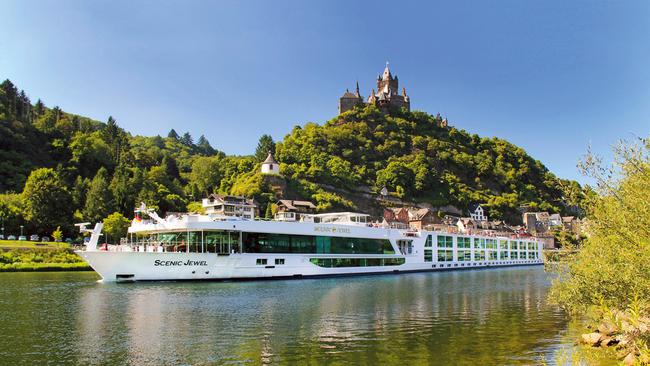
2. How accessible are river cruises, really? Will my wheelchair be problematic?
It might be best to answer your questions with one of my own: are you sure you wouldn’t rather book an ocean cruise? I ask because while river cruising might seem like it would be a better choice for those with mobility issues (those adverts with older couples enjoying ever-changing scenery from the deck sure has us fooled), they’re notoriously difficult for wheelchair users to navigate.
Some cruise lines offer accessible cabins (Scenic, Emerald Waterways, Vantage and CroisiEurope among them) but they are as rare as hen’s teeth and sell out in a flash. Add to that steep and narrow gangways, multi-berthing vessels that require guests to walk across other ships to disembark, elevators that don’t reach the sundeck, and more than a few cobbled European streets. There’s also the fact that with a percentage of shore excursions likely unsuitable for your abilities, you may not be able to enjoy the full value of your cruise, and there’s nothing worse than having to sit things out when you’ve paid for them.
Of course, provided you’re travelling with a companion who can help you navigate your way on, off and around the ship, river cruising isn’t impossible. Keep your eyes peeled for accessible staterooms on the cruise lines above, or consider a river cruise in the United States where ships must adhere to ADA (Americans with Disabilities Act) standards and ports are considerably more wheelchair-friendly.
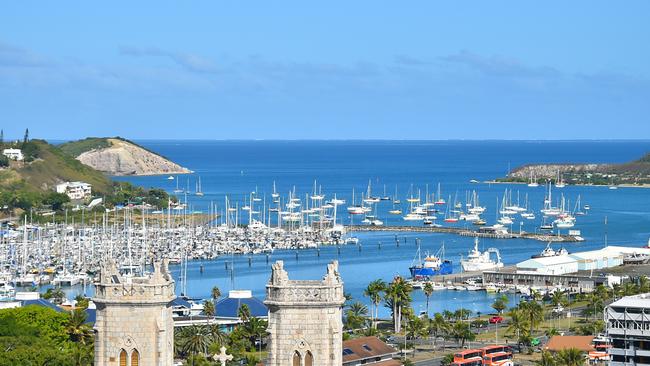
3. What are my rights if the cruise line changes the itinerary?
Years ago I paid for a South Pacific adventure that was slated to stop at a slew of tropical islands, but then the itinerary changed and all I got to see was the inside of our ship, plus Nouméa for a few hours. That was the day I discovered first-hand that when it comes to itinerary changes in cruising, passengers have next to no rights.
There are many reasons cruise lines may dramatically alter an itinerary (avoiding areas of conflict or dangerous weather conditions, scheduling conflicts or port closures, for example), but their right to do so is neatly buried within the terms and conditions we agree to when we pay our fare.
You’ll be refunded for any shore excursions you’ve already paid for, and potentially your port charges and taxes, but the level of compensation you’ll receive ultimately depends on the cruise line. Some will offer cruise credits to put towards future cruises, others will offer on-board credits (be aware that this can be as little as $50).
Top tip? It’s always best to book your cruise through a CLIA-certified travel agent who can go in to bat for you as well as adjust travel arrangements accordingly, should it be required.
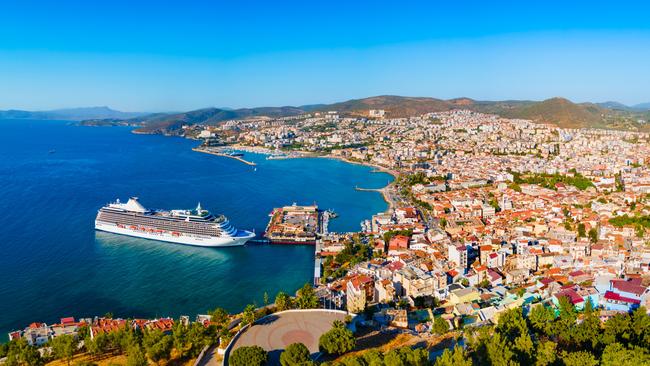
4. Which region is best for those who suffer sea sickness?
Anyone who has had the misfortune to be caught in a storm in the middle of the Mediterranean (one of the calmest bodies of water) will tell you this: Mother Nature will do what it wants, when it wants. That said, if you’re the kind of person who tends to get queasy at the merest suggestion of motion, try to avoid the South China Sea, the Bay of Biscay and any ocean crossings of the Atlantic or the Pacific. It’s also a hard no to any sailings across the Drake Passage, Bass Strait and the Tasman Sea.
I know it sounds like I’ve eradicated everything outside of sitting in a dinghy in a lake, but that’s far from the truth; you could consider cruising the Mediterranean Sea or the Red Sea, both of which are protected by surrounding landmasses (June to October sailings are the calmest for the Med). The Adriatic Sea tends to be fairly gentle – particularly around the Croatian coastline – as does Alaska’s Inside Passage.
The weather can always turn, of course, so those with delicate constitutions should aim to book sailings on ships that are larger and newer, as these are far more likely to be fitted with modern stabilisers that counteract the motion of those waves than, say, a retrofitted relic from the early 2000s.
If possible, book a stateroom on a lower deck and in the middle of the ship, because this is where you’re likely to feel the least amount of movement, and pay a little extra (if you can) for a balcony, or at the very least, a window so you can see the horizon. I’m sure you’re already across it, but having a bag ready to go with Kwells, ginger drops and dry biscuits or crackers can make the difference – just remember to get it down the hatch long before you start feeling ill.

5. What happens if I have a medical emergency on board?
This concern comes up quite a lot and the news is positive. While the size of the clinic and the number of doctors and nurses on board vary, all ships have medical facilities ready to treat everything from common injuries (falls are one of the most common issues on board cruise ships) to illnesses, chronic or sudden.
In cases of serious illness or injury while the ship is either in or very close to a port, an ambulance will be called to transfer you to a local hospital, but if you require urgent medical care and you’re far from land, you will be medevaced by helicopter.
Medical evacuations are eye-wateringly expensive and aren’t always covered by travel insurance policies so it’s always a good idea to look for this while comparing policies. This is also a good time to mention that if you’re travelling with medication, be sure to bring an extra week or so’s worth of supplies in case of delays.
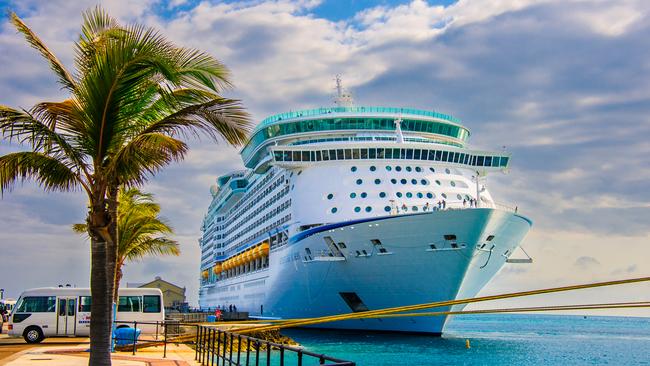
6. Will the cruise company organise my visa?
As someone who has just completed the process of trying to organise several visas all at once, let me say, I wish! Unfortunately, it is always the responsibility of travellers to organise (and pay for) visas for any countries visited during the cruise (including at embarkation and disembarkation points). While cruise lines may, at times, provide information on what is required, it’s easy to get caught out with outdated advice, so it’s essential to always check with each country’s consulate and do your research and application well in advance. The last thing you want is the stress and expense of needing expedited applications. Some cruise lines offer services that facilitate the process, such as working with visa agencies, but using these can require the black market sale of a non-vital organ (or two).
I’m also keen to add here that although you don’t need to get a visa for any destination where you don’t intend to get off the ship, it’s always a good idea to get one anyway. Whether it’s an unplanned incident or just the unexpected allure of the destination itself, it’s good to have the option to set foot on land.
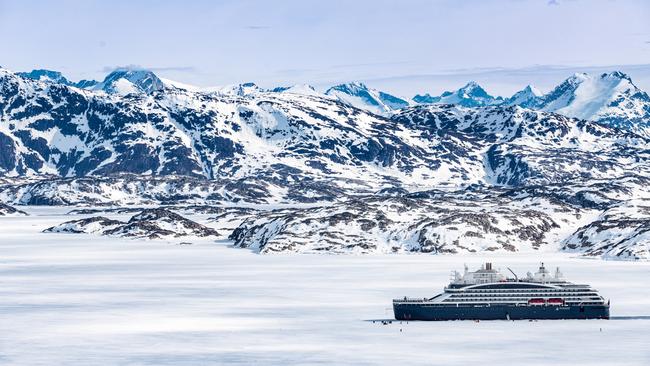
7. What are the major differences between an expedition cruise and a regular ocean liner?
In a nutshell, if you’re after a bells-and-whistles entertainment experience, with a multitude of restaurants, bars, activities and kids’ club, that’s a traditional cruise on an ocean liner.
An expedition cruise delves deep into the destination, with much of the eye candy located out the window. Think more educational lectures from experienced expedition leaders and local guides highly qualified in their fields, citizen science centres and small-scale screenings relating to the history or landscape of your destination.
Expedition ships are smaller and more intimate, usually featuring only one dining room and very rarely (on newer ships) a pool.
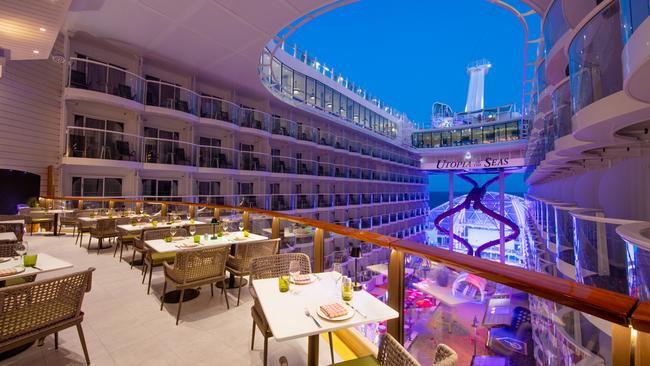
What not to pack for your cruise:
Keep the following out of your luggage:
- Knives, scissors and open razors
- Flammable liquids and substances, as well as candles
- Boom boxes and all types of speakers (on some cruise lines such as Carnival)
- Remote-controlled devices and autonomously flying devices such as drones
- Appliances with heating elements such as coffee machines and irons
- Surfboards, bicycles and scooters (unless used for mobility)
- Power boards, extension cords and multi-plus box outlets
More Coverage
Originally published as Doc Holiday answers your big questions about cruises





